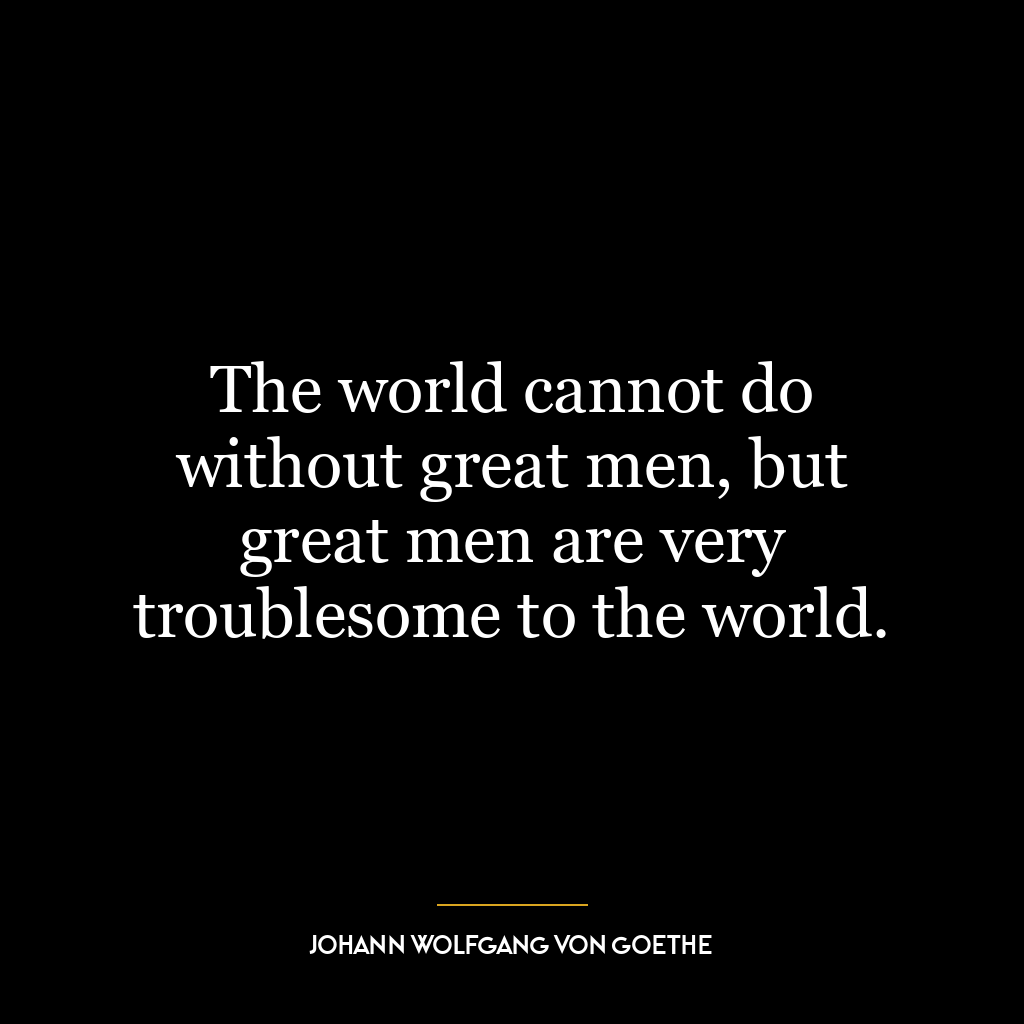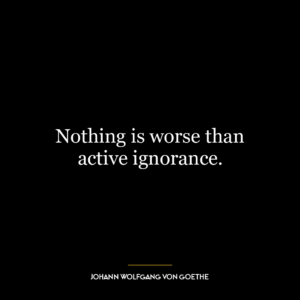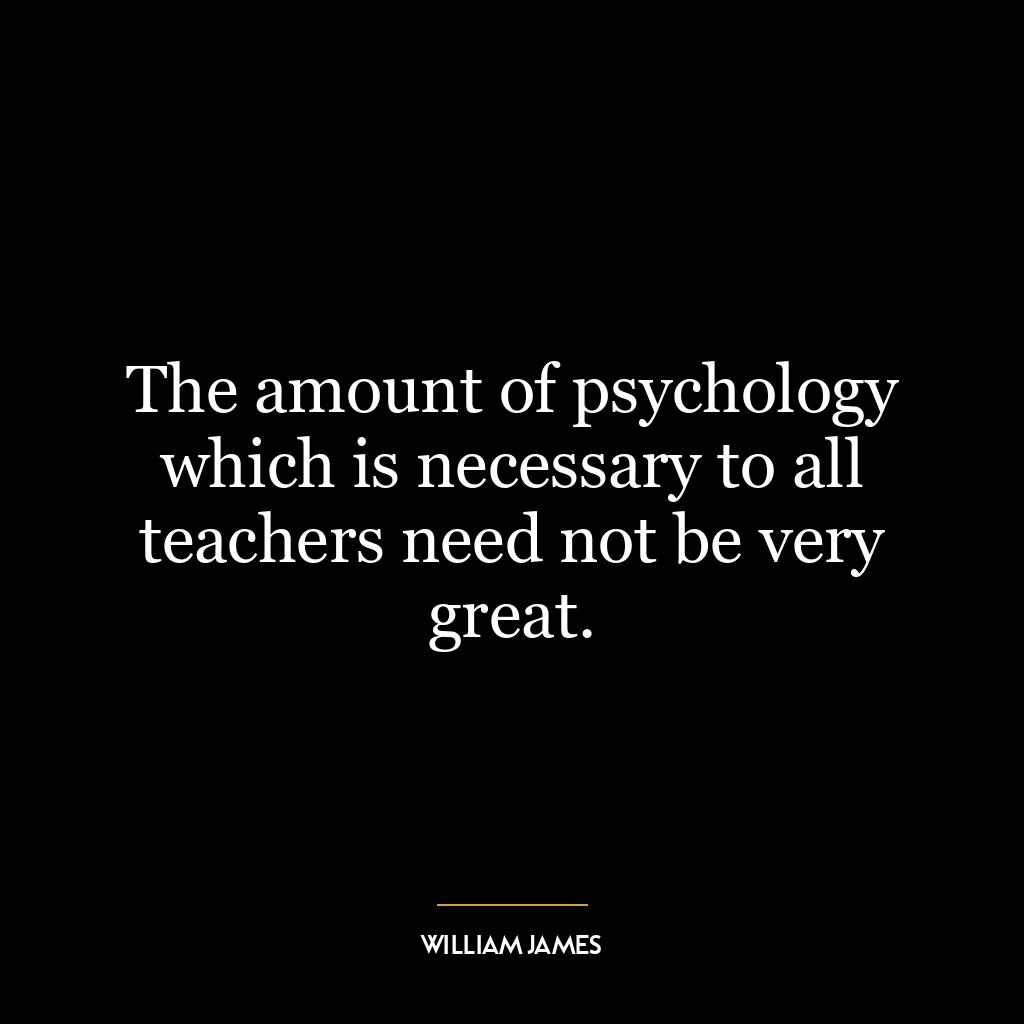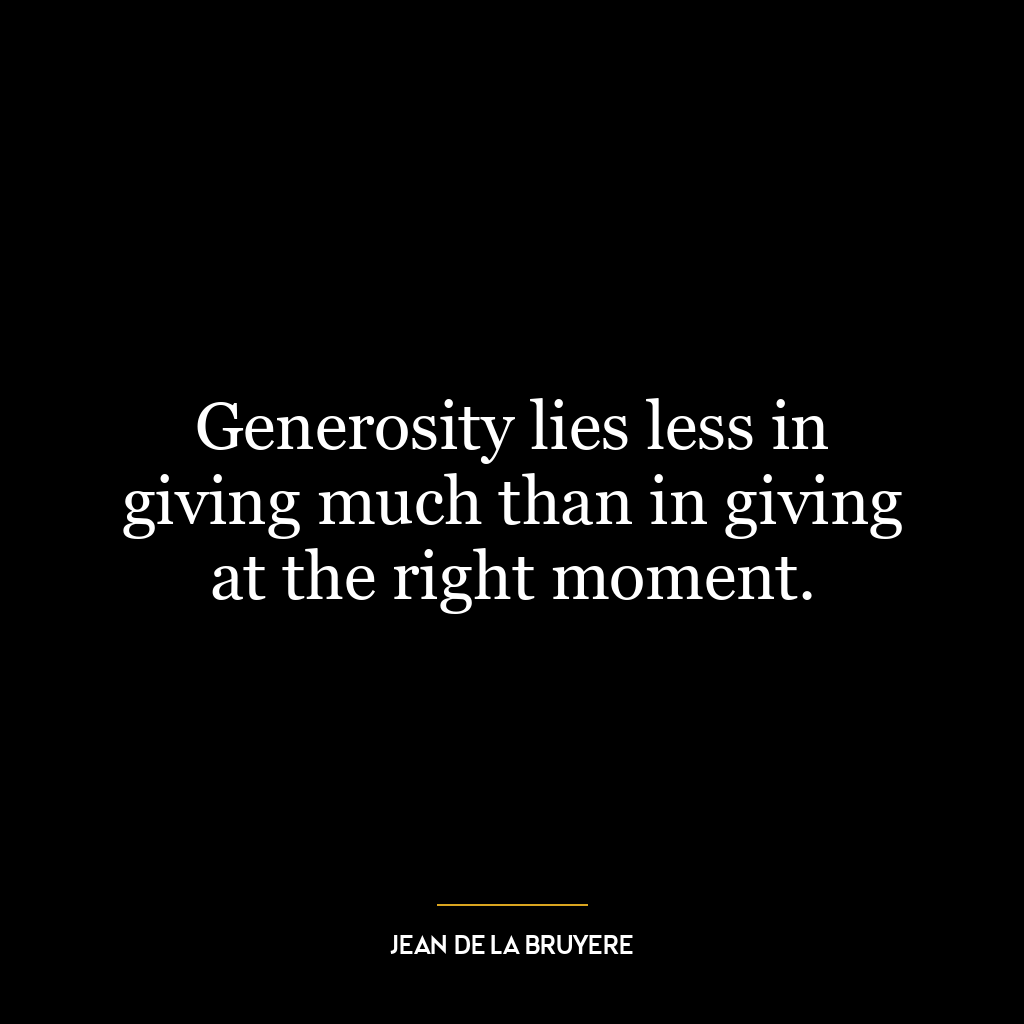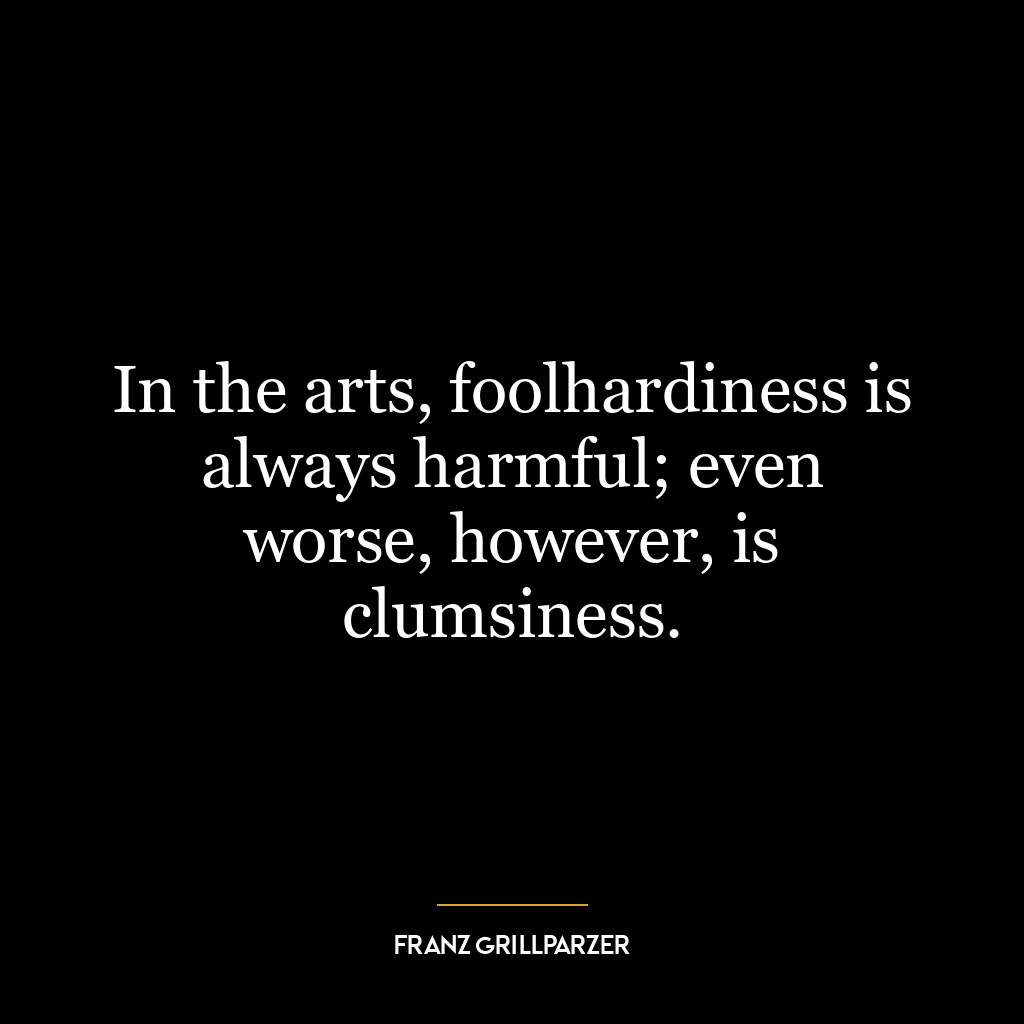The world cannot do without great men, but great men are very troublesome to the world.
This quote suggests a paradoxical relationship between great men and the world. On one hand, the world needs great men to inspire, lead, innovate, and push the boundaries of human potential. These individuals often bring about significant changes and advancements, be it in politics, science, art, or any other field.
On the other hand, great men can also be a source of disruption and discomfort for the world. Their ideas and actions often challenge the status quo, provoke thought, and instigate change, which can be unsettling and difficult to accept for many. They may cause conflict, upheaval, or resistance as they strive to implement their visions or as their ideas clash with existing beliefs and systems.
In today’s world, this idea is still very much applicable. We see many individuals who are considered ‘great’ in their respective fields, from Elon Musk in technology and innovation to Malala Yousafzai in activism. Their ideas and actions have undoubtedly transformed the world in many ways, but they have also faced significant resistance and criticism.
In terms of personal development, this quote might suggest that striving for greatness is a worthy but challenging pursuit. It requires courage, resilience, and the willingness to face opposition and discomfort. It also implies that those who seek to make a significant impact should be prepared for the challenges and resistance they may encounter.
Ultimately, the quote underscores the complex and often challenging relationship between individuals who strive for greatness and the societies in which they live. It highlights the need for such individuals, while also acknowledging the difficulties they can bring.

